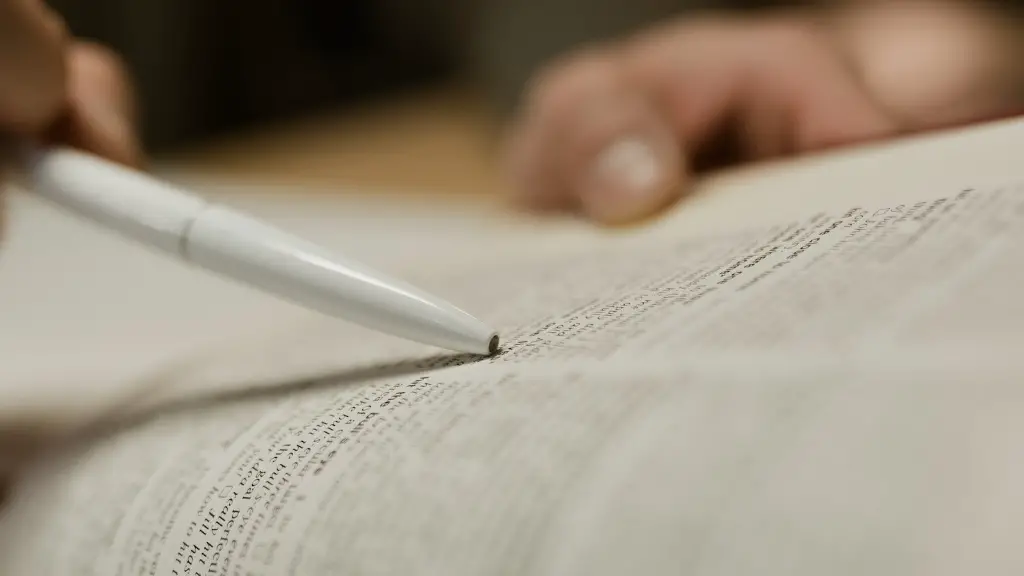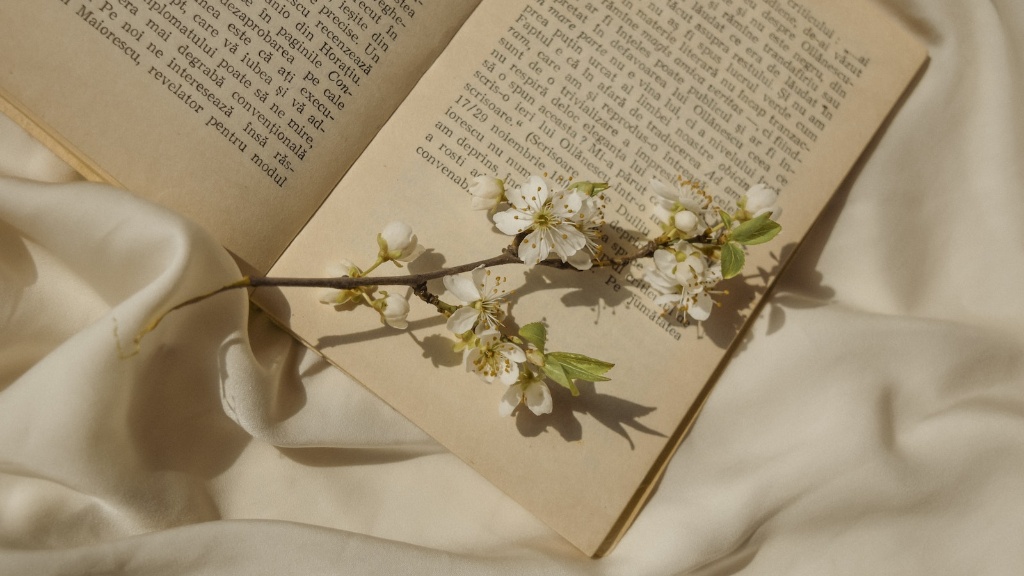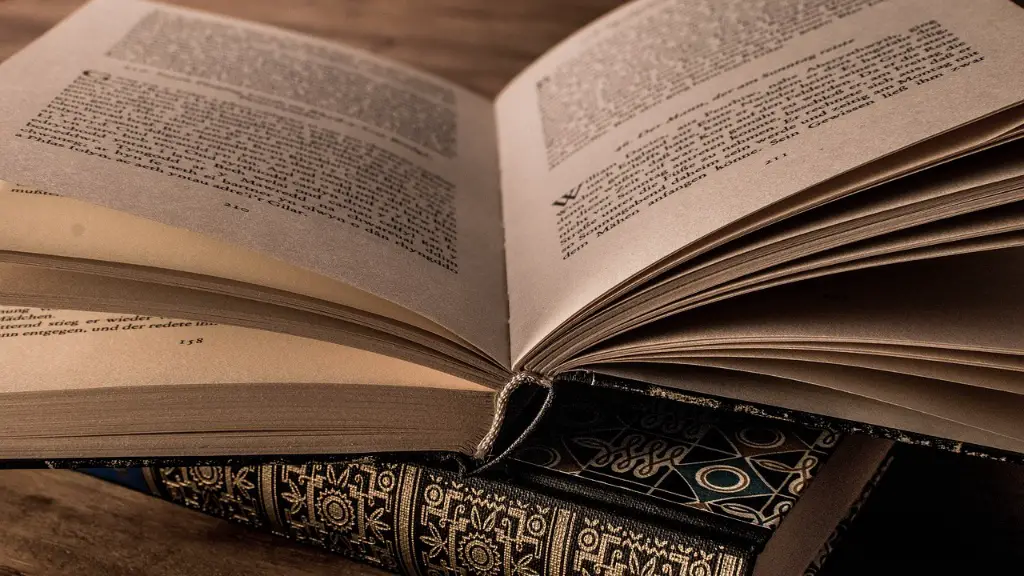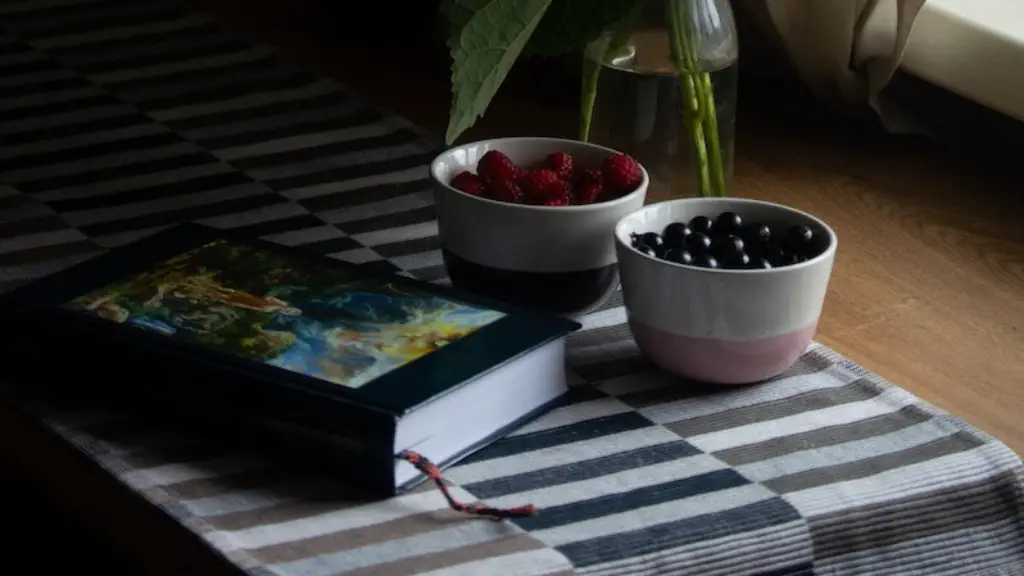In an age where the digitization of information is seen as the primary source of truth, the relevance of poetry is often questioned. While it may seem old-fashioned and quaint in comparison to technology, the power of words and how they affect us should not be underestimated. Poetry has been around for centuries, enabling different voices to be heard and stories to be told, often via thought-provoking messages or emotions. In this article, we will provide a defence of poetry, exploring its psychological, social and cultural impact, while addressing various questions surrounding its value in today’s society.
Human beings are complex and reactions to poetry often depend on personal experience and education, yet psychologists agree there are certain benefits from engaging with this literary form. The emotions evoked from carefully crafted words can have a strong and powerful effect on the reader. In particular, the rhythmic pace of a poem can create a unique and specialised atmosphere for the audience, potentially relaxing them and leading to a greater understanding of the lyrics and their meaning. This can be especially helpful in cases of therapy and counselling.
Perceptions of poetry in the public sphere are often misunderstood, with some even calling it ‘useless’ and ‘irrelevant’. It is often assumed to be complex and difficult to understand, however this is not always the case. Poetry, like any other medium, has the power to both challenge and enlighten its audience. It can be as straightforward or complicated as desired and can prompt its reader with thought, reflection and understanding of a given topic.
From a sociocultural perspective, poetry is incredibly beneficial for a variety of reasons. Many poets draw on political and social issues prevalent in their current age, allowing readers to better comprehend the climate of the time. It is also an excellent way to spread awareness. Writers are able to craft powerful messages that can reach wide audiences and effectively pass on valuable information.
Overall, the advantages of poetry far outweigh any perceived negatives and should not be overlooked or ignored. Poetry can be seen in many aspects of life, whether it be song lyrics, emotive speeches or heartfelt letters. The impact of its messages can be long lasting, leaving the reader changed in some way. Although it may not be a substitute technology, it is certainly an invaluable resource that should be celebrated and appreciated.
History of Poetry
The art of writing and reciting poetic verse has been in existence for centuries, dating back to around 2000 B.C. It is believed that some of the oldest known poetry comprised of verses inspired by the gods and goddesses of ancient times.
With the evolvement of writing, different genres of poetry emerged. Examples include the epic, narrative and lyric poetry from Ancient Greece and Rome, as well as the ghazal, sonnet and sijo from the Middle East and East Asia. Each style addressed different topics such as love, war, nature and religion.
The diversity of these early tropes and the varied topics that they explored allowed poetry to become an accessible and relatable form of communication. Over the years, it has been embraced by various cultures worldwide, each with their own language and writing style, linking the form to distinct regions.
In recent times, poets have taken their endeavours further by using a range of multimedia platforms to express themselves. The work of many modern-day poets can be found online, allowing it to reach a much wider public, effectively reviving the genre.
Poetry Awards and Prizes
The world of poetry is one filled with accolades, both past and current. Many countries host their own awards for literary works that address a wide range of topics and evoke different emotions.
One of the most notable awards is the Nobel Prize for literature, which has been given out since 1901. It recognises individuals who have made outstanding contributions to literature and has been awarded to many famous poets including William Butler Yeats, Seamus Heaney and Pablo Neruda.
Founded in the UK in 1969, the Forward Prizes for Poetry recognises the best new collections of poetry written in English within a calendar year. The prize comprises of three categories – the Best Collection, Best Poem and Best First Collection – and features some of the highest quality works currently on the market.
The Queen’s Gold Medal for Poetry is another renowned prize that has been awarded since 1933. Established by King George V, the award is given out to individuals who have submitted their best poetic works to the competition. It recognises creativity, skill and technical proficiency, making it highly sought after by many of the UK’s most prolific poets.
Contemporary Female Poets
The poetry community is more diverse than ever before, with female poets playing a significant role in the contemporary scene. Many of these women have brought new artistic perspectives to the fore and influenced the craft of writing like never before.
From academic pioneers such as Maya Angelou and Alice Walker, to influential 21st-century writers Veronica Shoffstall, Rupi Kaur and Yrsa Daley-Ward. These female poets have used the power of their words to speak out against racism and sexism, and shed a light on issues pertinent to women everywhere.
By using relatable language, many of these artists have been able to connect with larger audiences and prove that contemporary poetry can be inclusive, creative and dynamic.
The works of these female pioneers of poetry serves as a testament to its power and demonstrates the power of the written word, something that should not be underestimated.
Poetry for Self Expression
One popular use for poetic writing is to express raw emotions, thoughts and feelings. For some, writing can be an outlet, allowing individuals to express the inexpressible. It is a medium that thrives on subjectivity, allowing writers to speak their truth without judgment.
Not only can poetry be cathartic, but it can also help to challenge toxic or oppressive values in society. Creative writing can be used to combat systemic discrimination and break down social norms, making way for a new age of openness and inclusion.
Writers of all ages can use poetry to process trauma and hurt, allowing them to constructively work through difficult times. In many cases, those who write about their problems can gain a new outlook, effectively leading them to move on with their lives.
The ability to respond to the present moment is what makes poetry so special; its messages both timeless and relevant. So often, the written word is more powerful than even the most outwardly expressive of acts, allowing poets to share their stories in an organised and meaningful way.
Slam Poetry
Slam poetry is a form of performance art that has been popularised over the last few decades. Originating in the US in the early 1980s, it has since gained traction in various countries worldwide, notably the UK and Australia.
Rather than the traditional means of written communication, slam poetry instead features spoken word performances. These performances are often accompanied by music, costumes and props, and can be presented on television, at live events or online.
Through this medium, many artists have shed a light on wicked social issues such as poverty, racism and police brutality, highlighting flaws in our societal structures that need to be addressed.
In particular, slam poetry can be empowering for those rejecting oppressive structures, allowing them to find their voices and speak their truth. For many, it is a powerful means of self-expression, providing an outlet for the neglected and underrepresented.
Poetry Books
Within popular literature, poetry books continue to be incredibly successful, despite the competition from other genres. The analysis, creativity and innovation of modern-day poetry is something to be admired, with many collections featuring thought-provoking messages that conjure profound emotions.
The poetry industry also continues to celebrate classic works and the later pieces of their respective authors. Famous titles such as Romeo and Juliet by William Shakespeare and T.S Eliot’s The Waste Landare evergreen must-reads, while Don Paterson’s Rain is anexample of contemporary work that is equally acclaimed.
These works serve as a reminder of the power of artistic expression and the profound mark literature can make on an individual, no matter their background. They also demonstrate that poetic works can be beautiful, varied and complex, proving why they are as relevant as ever in today’s society.





